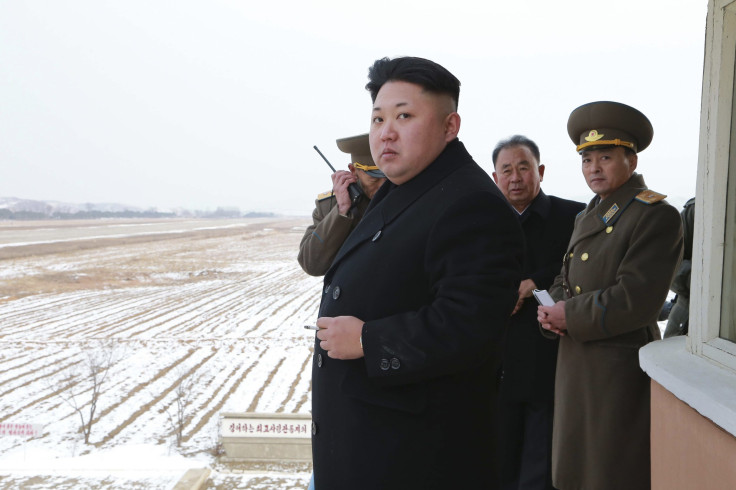North Korean Cyberattack Could Elevate Kim Jong Un From Laughingstock To Global Threat

The FBI’s revelation Friday that North Korea was responsible for the destructive hack on Sony Pictures Entertainment could mark leader Kim Jong Un’s transformation from Hollywood punch line into a serious figure on the global stage. The unprecedented, state-sponsored crippling of a major corporation was arguably Kim’s first act of international consequence since he assumed power in 2011.
“North Korea’s actions were intended to inflict significant harm on a U.S. business and suppress the right of American citizens to express themselves,” the FBI said in a statement. “Such acts of intimidation fall outside the bounds of acceptable state behavior.”
Calling itself the Guardians of Peace, a hacker collective targeted Sony over “The Interview,” a comedy film that culminates in Kim’s assassination; it was scheduled to open on Christmas Day. The hackers systematically destroyed property, leaked sensitive data and made threats against theaters and moviegoers. After major theater chains announced they would not show the film, Sony decided to cancel its release.
North Korean government officials previously had denied responsibility for the Sony hack. But FBI analysis revealed the Guardians of Peace used malware and techniques that North Korean hackers are known to have used in the past, particularly in connection with an extensive hack of South Korean banks and media outlets last year.
Kim’s implicit sponsorship of a cyberattack against one of the West’s biggest corporations would represent a major departure from his previous antics on the international stage. The 31-year-old has a reputation for ruthless treatment of political opponents and suppression of Western ideals within his domain, but he had never before challenged the United States in such a direct way.
Previous diplomatic clashes were limited to disputes over American hostage Kenneth Bae or Kim’s apparent friendship with former NBA star Dennis Rodman. North Korean displays of power hadn’t expanded beyond rattling its saber at South Korea and sporadic attempts to show off the Communist nation’s fledgling nuclear arsenal, such as a test of two medium-range ballistic missiles in March.
Speculation existed as recently as October that Kim barely had the capacity to maintain power in North Korea, let alone attempt an international power play. Normally a fixture on state television, Kim was not seen in public for five weeks from September to October. His absence prompted countless rumors, ranging from claims that he had serious health issues to reports that he lost power after a military-backed coup.
The cyberattack thrusts North Korea onto the international stage at a level not seen since former U.S. President George W. Bush in 2002 labeled the regime of Kim’s father, Kim Jong Il, as one-third of the “Axis of Evil,” along with Iran and Iraq. Bush’s pronouncement stemmed from North Korea’s efforts to develop weapons of mass destruction.
Twelve years later, American officials are concerned over North Korea’s entrance into a new type of destructive warfare. “The FBI will continue to work closely with multiple departments and agencies as well as with domestic, foreign and private-sector partners who have played a critical role in our ability to trace this and other cyberthreats to their source,” the agency said. “Working together, the FBI will identify, pursue and impose costs and consequences on individuals, groups or nation states who use cyber means to threaten the United States or U.S. interests.”
© Copyright IBTimes 2024. All rights reserved.






















